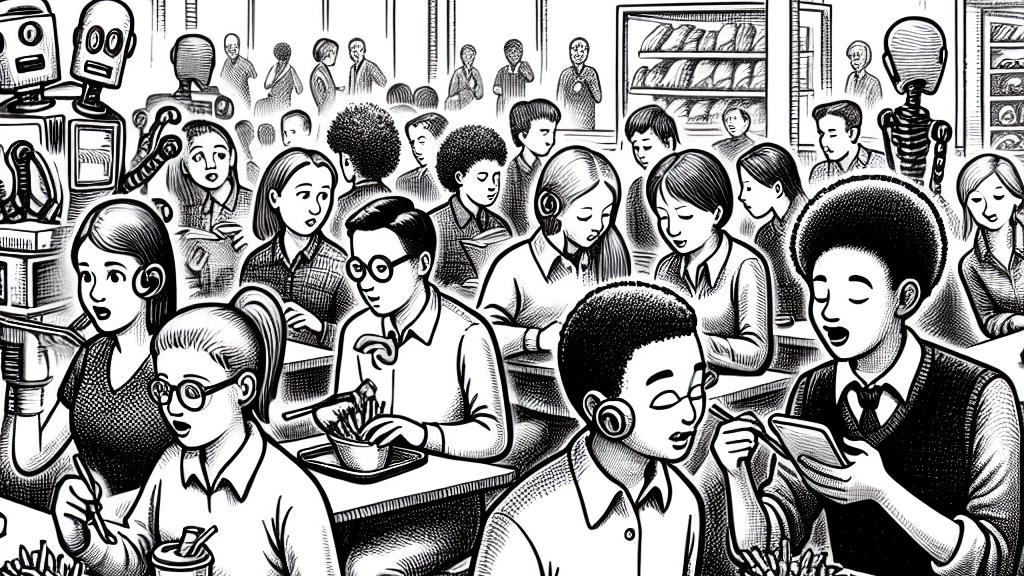Understanding How Humans and AI Learn Together
Overview
- Explores the intriguing Rogers' Paradox and its critical implications for human-AI interactions.
- Investigates how reliance on AI affects human cognitive development and critical thinking skills.
- Highlights the potential risks of negative feedback loops stemming from excessive dependence on AI.

The Intrigue of Rogers' Paradox
Rogers' Paradox, as introduced by Alan Rogers, presents a captivating challenge to our understanding of social learning. It posits that while socially sharing knowledge often appears to save time and resources, it may not actually enhance the collective fitness of a group. Picture this: imagine a scenario in a high school where students almost entirely rely on AI to complete their projects. While they may finish tasks faster, they risk missing out on deeper insights and learning opportunities. It's like opting for fast food instead of a home-cooked meal—sure, it's quick, but it lacks the richness and nutritional value that fosters growth and understanding.
Understanding the Impact of AI on Learning
Let’s dive into this further. Consider a group project assigned to students where they all pull information from an AI-generated article. This might seem efficient at first, but there's a downside. If each student merely replicates the AI's suggestions, creativity dwindles, and the conversation stalls. For example, if a student leans on AI to summarize a complex novel, they might miss the nuances of character development that arise from actual discussion among peers. Instead of sparking passionate debates that lead to richer analyses, they end up echoing the same point. The unique ideas that arise from diverse viewpoints—the very essence of learning—begin to fade away. In this light, relying solely on AI is like attempting to navigate with a map that only shows the major roads, while the beauty lies in the smaller, winding paths that truly enrich the experience.
Avoiding the Traps of Negative Feedback Loops
Moreover, let’s consider the long-term implications of this pattern. Excessive reliance on AI tools can lead to a stagnant intellectual environment, creating negative feedback loops where learners become complacent. It's akin to a muscle that atrophies without regular exercise—instead of evolving, both the human and the AI's capabilities may diminish. Imagine if every student in a school opts to learn from AI without critical questions or challenges; soon, AI may become less effective at providing the rich, nuanced information that fosters human growth. To break this cycle, it's essential to promote learning strategies that value active engagement. We must encourage students to question AI's outputs and engage in discussions that stimulate thoughtful interactions and promote innovative thinking. Activities like debate clubs, peer review sessions, and interactive workshops can turn learning into a vibrant, collaborative adventure. By embracing this proactive mindset, we ensure that AI remains a helpful guide, not a restricting crutch.

Loading...